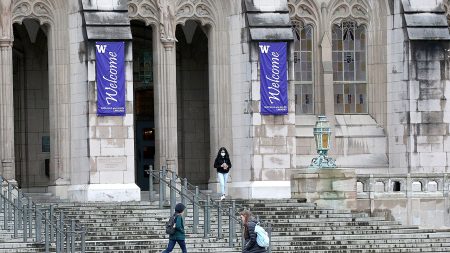A Tale of Privilege Turned Terror: From Suburban Comforts to ISIS Plots
In an unsettling turn of events that has shocked the affluent community of Montclair, New Jersey, two 19-year-old student athletes from privileged backgrounds have been arrested on charges related to ISIS-inspired terrorist activities. Tomas Kaan Jimenez-Guzel and Milo Sedarat were taken into custody on Tuesday, sending ripples of disbelief through their upscale neighborhood where both teens resided in million-dollar Victorian homes. The arrests paint a stark contrast between their advantaged upbringings and the extremist ideologies they allegedly embraced. Jimenez-Guzel, described as a hulking 6-foot-1, 235-pound former defensive end on his high school football team, was arrested at Newark Liberty International Airport while allegedly attempting to travel to Turkey with plans to reach Syria and train with ISIS. Meanwhile, Sedarat, a former high school wrestler, was apprehended at his father’s $1.2 million three-story home in the same manicured suburb that houses prominent figures like New Jersey’s governor-elect.
What makes this case particularly jarring is the prestigious backgrounds of both suspects. Jimenez-Guzel’s mother, Meral Guzel, has served as the head of the United Nation’s Women’s Entrepreneurship program for over a decade, dedicating her career to women’s empowerment projects after previously working in finance. Sedarat’s father, Roger Sedarat, is an award-winning Iranian-American poet and professor at Queens College in New York, known for celebrating Persian poetry and the written history of Iran. Both young men attended Montclair High School, one of the region’s most prestigious public institutions, before allegedly turning toward extremism. The community of Montclair itself stands as a sought-after suburb outside Newark, home to notable residents and characterized by its affluent atmosphere—making the allegations all the more incongruous with the environment in which these young men were raised.
The charges against the teens are severe and deeply troubling. Sedarat faces two counts of transmitting threats in interstate and foreign commerce, with Acting US Attorney Alina Habba describing “a pattern of antisemitic messages advocating violence” found in his communications. Authorities also discovered evidence suggesting preparation for attacks, including a knife and sword collection, tactical gear, and images of Sedarat practicing at a gun range. Jimenez-Guzel’s case is equally alarming; he is charged with attempting to provide material support to a foreign terror group. Federal officials claim they discovered numerous ISIS-inspired messages on his phone, including statements about conducting a “Boston bombing-like attack” and photographs of him posing with a knife in front of an ISIS flag. The severity of these allegations was reflected in their court appearances, where both teens appeared shackled at the wrists and ankles before Magistrate André Espinosa, who ordered Sedarat held at Essex County jail and granted prosecutors’ requests for no-contact orders between the suspects.
According to federal authorities, these arrests connect to a broader terror plot that extends beyond the borders of Montclair. Sedarat and Jimenez-Guzel were allegedly part of a chat group where several members discussed plans for a Halloween attack codenamed “Pumpkin.” Materials related to several mass shootings and terrorist attacks, including the 2013 Boston Marathon bombing, Columbine, and the 2019 Christchurch mosque shooting, were reportedly found in their possession. The New Jersey arrests come on the heels of another ISIS-related case in Michigan, where several individuals, including 20-year-old Mohmed Ali and 19-year-old Ayob Nasser, were charged with plotting an attack on gay bars in Detroit and supplying weapons for ISIS-inspired activities. This apparent network of domestic ISIS sympathizers represents a troubling development in homegrown extremism.
The Michigan connection reveals the potential scale of the alleged plot. Before Ali and his associates could carry out their planned terror attack, authorities raided their homes and a storage unit, recovering an arsenal that included three AR-15-style rifles, two shotguns, four pistols, and more than 1,600 rounds of ammunition, along with tactical equipment and GoPro cameras presumably intended to document their actions. Investigators also found images and messages on the suspects’ electronic devices demonstrating their obsession with ISIS, including videos of the 9/11 terrorist attacks. The criminal complaint references five unidentified co-conspirators and a minor who was allegedly assigned to carry out the attack alongside Ali, while the rest of the group planned to join ISIS in Syria—suggesting a coordinated effort to both strike domestically and support international terrorism.
The community’s response to these arrests has been one of profound shock and disbelief. In Montclair, neighbors left flowers and condolence notes at the Sedarat family home, struggling to reconcile how local teenagers from well-respected families could become entangled in such dark plotting. “They’re good kids,” remarked one neighbor who declined to be identified, while others described the families as “good neighbors.” The contrast between these statements and the gravity of the charges highlights the dissonance felt throughout the community. Meanwhile, U.S. Attorney Jerome Gorgon, Jr. has pledged that the Department of Justice “will not stop” and will “follow the tentacles where they lead,” suggesting that the investigation is ongoing and may uncover additional connections. As both teens face potential sentences of up to 20 years in prison, plus substantial fines and lifetime supervised release, their cases serve as a stark reminder that extremism can take root in even the most privileged and unexpected circumstances, challenging assumptions about the social and economic factors that contribute to radicalization.











